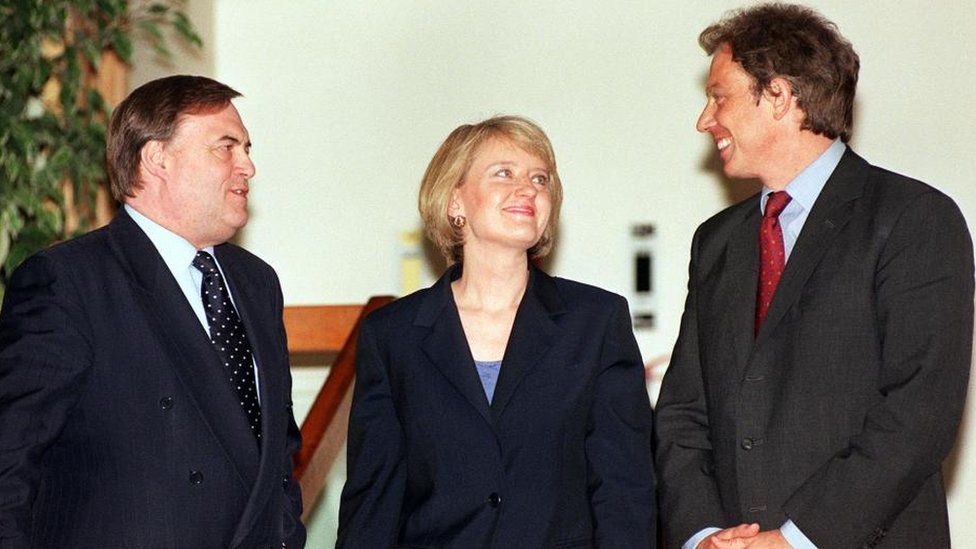
Baroness Margaret McDonagh, the first female general secretary of the Labour Party, has died aged 61.
She was a key figure in the party under Sir Tony Blair’s leadership, and played a central role in both the 1997 and 2001 general election victories.
She was diagnosed with brain cancer in 2021.
Senior Labour figures have paid tribute, including Sir Keir Starmer, who said she was “absolutely essential” in returning the party to power.
He called her a “tireless champion for women” who “may not have been as famous as some of the politicians she worked with but they wouldn’t have got into power without her”.
As part of Tony Blair’s inner circle during the New Labour era, she helped lead the party back into government and became its general secretary in 1998, playing a key role behind the scenes.
Sir Tony called her the “most loyal friend anyone could wish for” and said she was a “vital element” during Labour’s success in the late 90s and early 2000s.
She went on to run the successful 2001 election campaign and was made a life peer in 2004.
Lord Mandelson, who was the party’s campaign director during the1997 election, said she was a “tour de force” who ran Labour’s headquarters “with a rod of iron”.
He continued: “Everyone was terrified, including me. I have never met anyone so resolute, so uncompromisingly honest and so direct.”
Former Labour leader Neil Kinnock said she was “magnificent in every way” and had shown courage in fighting her illness.
He added: “She strove in the most practical ways for true equality for women throughout her life, she was a brilliant organizer for democracy and she had mixture of steel and charm which earned her loyalty from friends and admiration from foes.”
In March, her sister Siobhain McDonagh, the Labour MP for Mitcham and Morden, accused the NHS of abandoning people with glioblastoma, the brain condition Margaret was diagnosed with.
In an emotional Commons speech, she was critical of the lack of progress in how the cancer is treated, saying: “There is no hope, no future, no trials, nothing.”
